Main Content
Importance of Stormwater Management
Stormwater management is the effort to reduce runoff of rainwater or melted snow into streets, lawns and other sites and the improvement of water quality.
When stormwater is absorbed into the soil, it is filtered and ultimately replenishes aquifers or flows into streams and rivers. However, when heavy rainwater hits, ground saturated by water creates excess moisture that runs across the surface and into storm sewers and road ditches. This water often carries debris, chemicals, bacteria, eroded soil and other pollutants.
Most stormwater from UW Tacoma drains into the Foss Waterway which then makes its way to the Puget Sound. For this reason, UW Tacoma has implemented many stormwater management strategies to lessen the impact of urban water pollution.
Prairie Line Trail Stormwater Treatment
The regional stormwater treatment system contains two elements: a pretreatment swirl separator and a bioretention facility. The swirl separator is located in the parking lot just up the hill from the Prairie Line Trail and removes trash and larger debris. The bioretention facility is located along the Prairie Line Trail and consists of six treatment cells.
Stormwater is distributed across the surface through dispersion trenches. Dispersion trenches within the cells ensure runoff is spread evenly over the bioretention cell surfaces. Stormwater infiltrates through the bioretention media which removes pollutants including sediment and heavy metals. Plants within the bioretention facility help to ensure free flow of stormwater through the media and provide evapotranspiration and incidental pollutant uptake. Processes in and around the root zone of the vegetation aid in the breakdown and removal of pollutants.
The treated stormwater enters the City stormwater collection system where it is ultimately discharged into the Thea Foss Waterway.
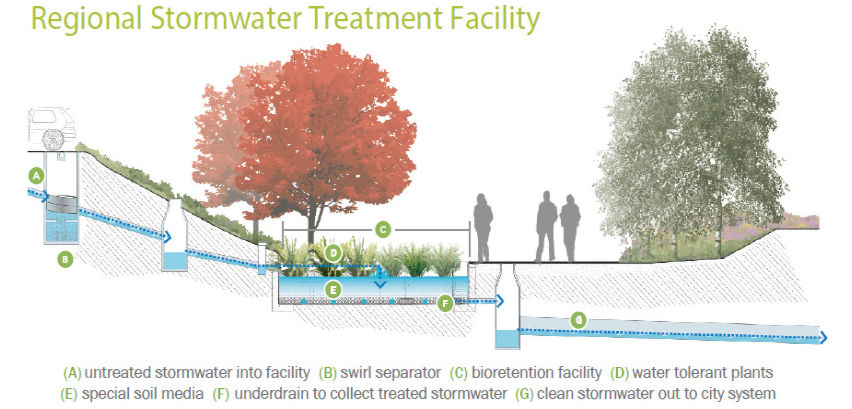
Rain Gardens
A rain garden is a depressed area in the landscape that collects rain water from a roof, driveway or street and allows it to soak into the ground. Planted with grasses and flowering perennials, rain gardens can be a cost effective and beautiful way to reduce runoff from your property. Rain gardens can also help filter out pollutants in runoff.
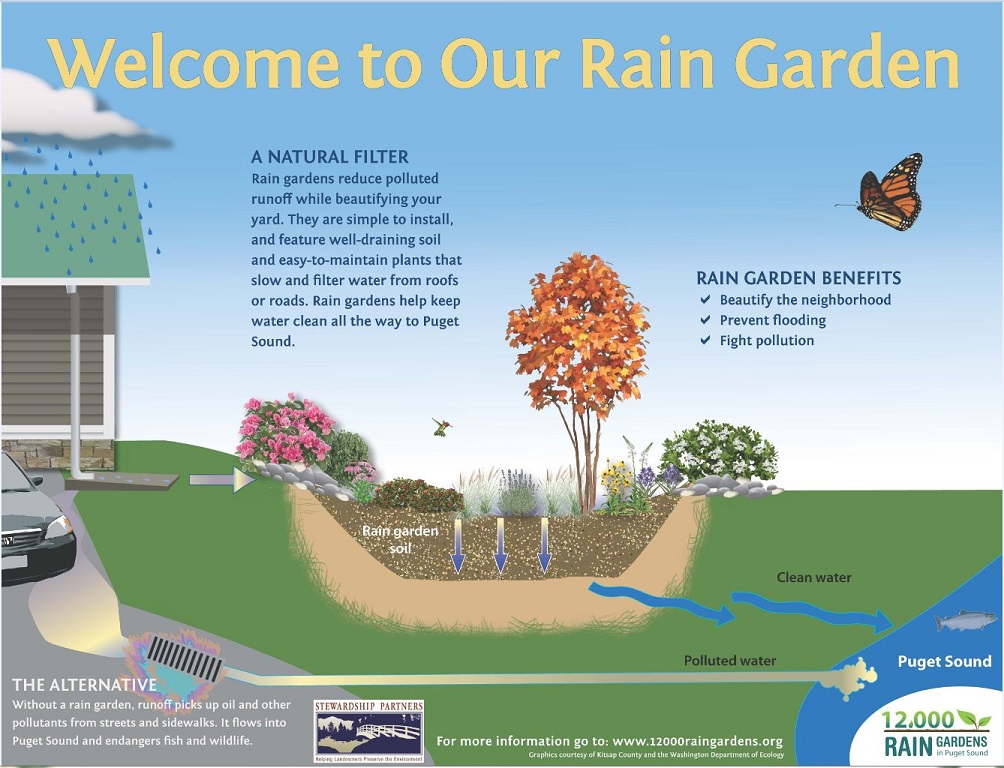
Rain Gardens on Campus
UW Tacoma utilizes many rain gardens on campus to minimize pollutants in our stormwater. Some rain gardens are currently located outside of Metro Coffee, in front of Tioga Library street entrance and outside of Joy campus entrance. Below are pictures of each of these rain gardens.
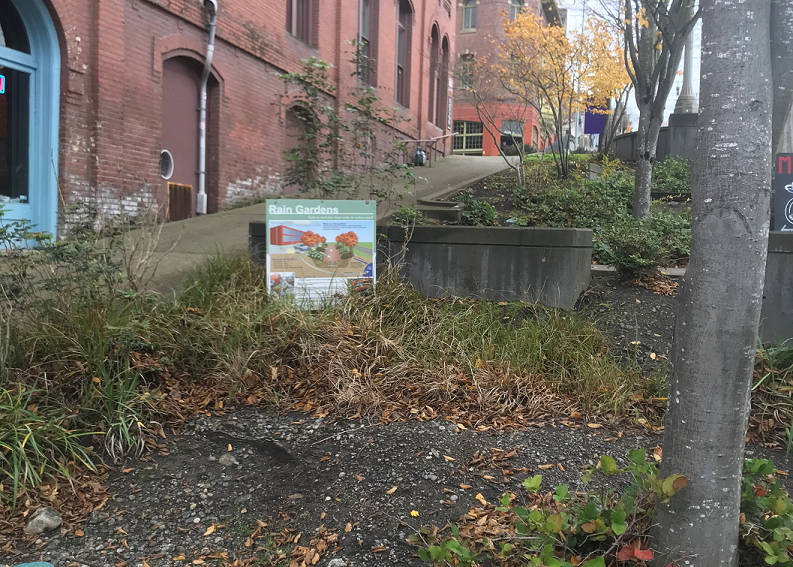
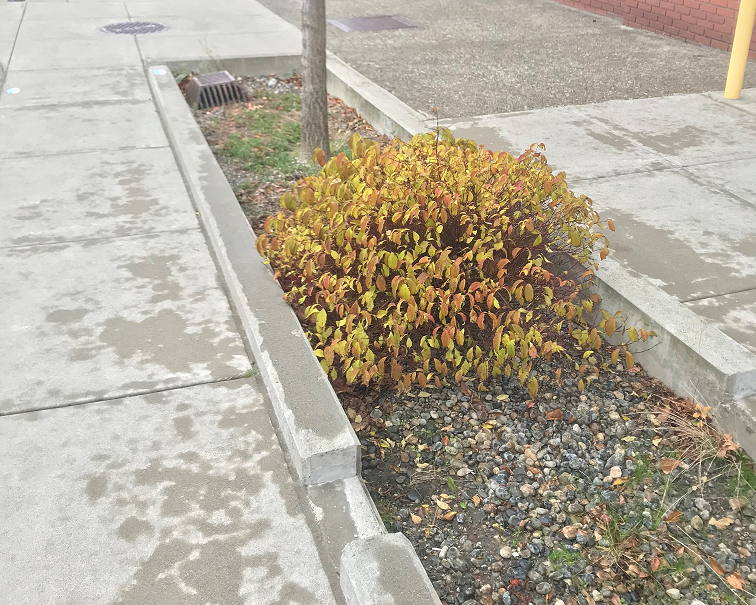
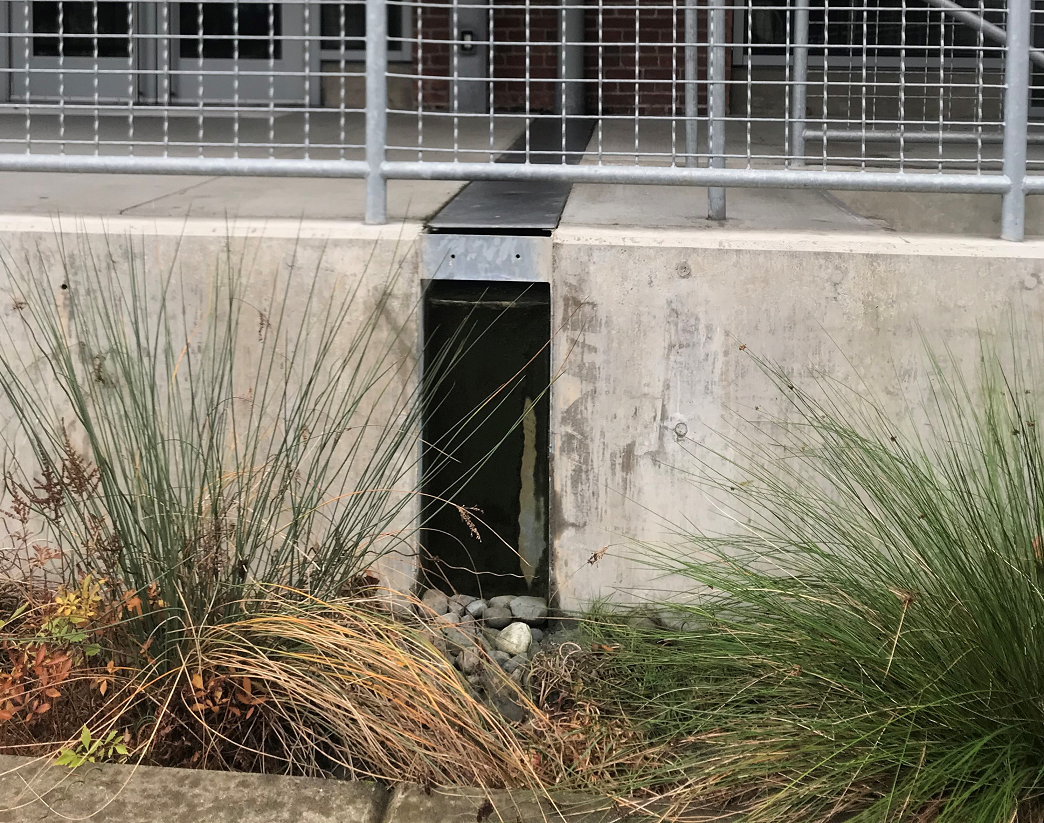
Storm Drains with Oil Pillows and Sediment Insert
Storm drains are infrastructure designed to drain excess rain and ground water from impervious surfaces such as paved streets, car parks, parking lots, footpaths, sidewalks and roofs. Around the campus, most storm drains are equipped with drain filters which catch any eroded soil, trash debris and other sediment. Our maintenance crews regularly check these filters to change them or clean them as necessary. This is an additional step the Facilities team takes to minimize the pollution runoff from our campus that most other institutions and businesses do not.
Oil Pillows (Onion Bags)
Some storm drains near parking lots or other areas where there is a risk of oils being spilled are equipped with oil pillows, also known as "onion bags" although no onions are used in the material. This material absorbs petroleum and petroleum-based liquids such as lubricants, fuels and pesticides without absorbing aqueous solutions (water-based liquids). This is to minimize the pollutants that go into the Puget Sound from our stormwater.
Sediment Inserts
Storm drains within the campus will also have Sediment inserts which "catch" sediment such as sand, rocks, leaves, cigarette butts, and other trash that our stormwater might transport into the Puget sound. These sediment inserts get inspected periodically to ensure no holes or overflow occur. This also saves the Campus maintenance cost since less sediment gets into the storm drains and would have to be emptied out with a Vacuum truck.
How can you help?
- Never dump anything down storm drains or in ditches.
- Pick up after your pet.
- Check your car for leaking fluids and recycle your motor oil.
- Don’t litter! Pick up trash you see on the ground (even if it is not yours) and participate in a creek or watershed clean-up!
